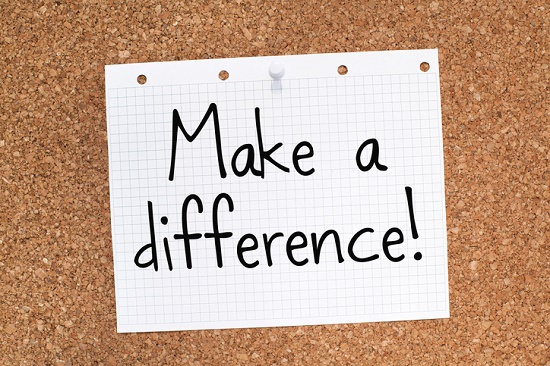
If you currently wear hearing aids, you’ve already overcome the odds.
In the United States, around 48 million people have hearing loss, of which 28.8 million could benefit from utilizing hearing aids.
Unfortunately, of those age 70 and older, only 30 percent of those who could benefit from hearing aids actually use them. For those age 20 to 69, it’s only 16 percent.
That’s millions of Americans that are missing out on the benefits of improved hearing—advantages you understand first-hand if you use hearing aids yourself or know someone who does.
So what can you do to elevate awareness about the benefits of hearing aids and the enhancements to the quality of life they provide?
Here are 10 ways to become an advocate for hearing health.
1. Discuss hearing loss on social media
Social media is an easy and efficient way to spread the message about the benefits of healthier hearing. Let people know how hearing aids work, and how they’ve personally improved your life or the life of someone you know.
While people are normally skeptical of advertising, they’ll always be receptive to personal stories.
2. Volunteer to help those in need
Participate in a local activity like the Hearing Loss Association of America’s Walk4Hearing event, or host your own to raise awareness or money for hearing loss.
Get in contact with your local hearing loss chapter and find ways you can help out in the community. Visit the Hearing Loss Association of America to find a local chapter.
3. Donate your old hearing aids
If you’re prepared to upgrade your hearing aids to a more recent model, think about donating your old hearing aids to a local organization or hearing clinic.
Your donated hearing aids can be refurbished and supplied to those who couldn’t otherwise pay for them.
4. Contribute to hearing health organizations
Consider donating to an organization that supports the deaf and hard-of-hearing community, such as the Hearing Health Foundation, Hearing Charities of America, or a local group.
These organizations use the donations to fund research, to deliver education and support, and to supply financial help to those who can’t pay for hearing aids or cochlear implants.
5. Start a petition
Most states do not mandate health insurance plans to help cover the cost of hearing aids. Start a petition to deliver to your elected representatives, asking them to recognize hearing health as a crucial aspect of total health.
6. Help someone overcome hearing loss
Plenty of people believe the misconception that hearing aids don’t work, or they may even be denying they have a problem in the first place.
Help people to recognize and accept their hearing loss and understand that the technical innovations in hearing aids can help them regain their hearing. Help guide them through the process of choosing a provider, getting their hearing tested, and adapting to their hearing aids.
7. Advocate for the community
Hearing loop systems deliver sound straight from the sound source to the individual’s hearing aids. These are found in churches, movie theaters, auditoriums, and universities.
Advocate for the inclusion of hearing loop systems in the most widely used community locations.
8. Wear hearing protection
One of the most effective ways to advocate for hearing health is by becoming a hearing health role model. That means safeguarding your hearing at loud venues, like at rock concerts or sporting events, with custom hearing protection.
9. Have your hearing tested
If you don’t already use hearing aids, display your devotion to hearing health by getting your hearing professionally tested. Share the process on social media and suggests that others do the same.
10. Proudly wear your hearing aids
Last, you can do your part to end the stigma of hearing loss by proudly wearing your hearing aids. Hearing loss is common, much like vision loss, and wearing hearing aids should be as typical and acceptable as wearing a pair of prescription glasses.